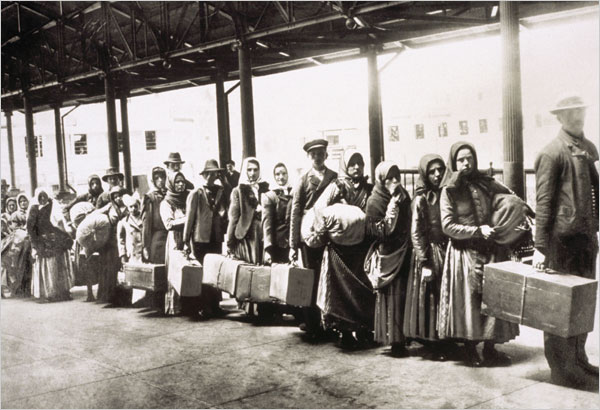What’s in a name? Earning potential.
According to a recent paper (pdf warning) published by the Institute for the Study of Labour, immigrants to American in the 1930s earned an average of 14% more if they changed their names to sound more American. This is in line with past studies that found that “foreign” sounding names tend to have a harder time getting job interviews. Researchers looked at 3,400 male immigrants to New York, amongst them Russians, Czechs, Italians, Poles, and other non-English speakers, who naturalized. Naturalization took two steps: first, candidates had to file a statement of intent. Second, they had to file a petition for immigration five years after their initial filing. This allowed researchers to look at individuals five years apart in time.
In the petitions, candidates also had to list their occupation. Using these listings, researchers found that immigrants who adopted more American names were earning an average of 14% more than immigrants to retained their “more ethnic” names, entirely due to the types of jobs being offered.
Of course, 1930s New York isn’t 2010s Canada. Names that “sound ethnic” change over time—early in Canadian history, names like “Gretsky” would’ve sounded foreign. These days, not so much. Still, it’s worth noting that there are real figures attached to how foreign one’s name sounds.


